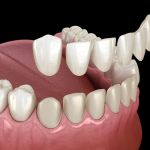- 1-understanding-the-adjustment-process-for-dental-braces
- 2-immediate-care-tips-after-braces-adjustment
- 3-long-term-maintenance-for-healthy-braces
- 4-managing-discomfort-and-pain-relief-after-adjustment
- 5-expert-recommendations-and-resources-for-braces-care
1. Understanding the Adjustment Process for Dental Braces
After a dental braces adjustment, your teeth and gums undergo gradual pressure changes that move teeth into their desired positions. This process can cause soreness and sensitivity, making proper care crucial. Understanding what happens during and after the adjustment helps you anticipate changes and maintain your oral health effectively.
Each adjustment fine-tunes the braces’ tension, so gentle care and attention to hygiene are key to supporting the treatment’s success.
2. Immediate Care Tips After Braces Adjustment
Right after your braces adjustment, focus on minimizing discomfort and protecting your mouth. Soft foods like yogurt, mashed potatoes, and smoothies are ideal, as they reduce chewing strain. Avoid hard, crunchy, or sticky foods that could damage your brackets or wires.
Maintain excellent oral hygiene by brushing carefully around braces and using an interdental brush or water flosser to clean between teeth. Rinsing with a warm saltwater solution can soothe irritated gums and reduce inflammation.
3. Long-Term Maintenance for Healthy Braces
Ongoing care after adjustments is essential to prevent plaque buildup, cavities, and gum disease. Brushing twice daily with a fluoride toothpaste, flossing regularly, and attending scheduled orthodontic appointments will keep your braces and teeth in optimal condition.
Using orthodontic wax to cover any sharp or protruding wires can protect your cheeks and lips from irritation. Staying hydrated and avoiding sugary snacks also supports oral health throughout your orthodontic journey.
4. Managing Discomfort and Pain Relief After Adjustment
Mild pain after adjustments is normal. Over-the-counter pain relievers such as ibuprofen can help alleviate soreness. Applying orthodontic wax or using cold compresses on the outside of your mouth can provide additional relief.
Listening to your body and resting when needed can ease discomfort. If pain persists or worsens, contacting your orthodontist promptly is important to address any potential issues.
5. Expert Recommendations and Resources for Braces Care
For personalized advice and trusted orthodontic products, visit Dentistry Toothtruth. Their expert guidance and carefully selected items help you maintain comfort and hygiene after every braces adjustment, making your orthodontic treatment smoother and more effective.
Following these tips ensures you care properly for dental braces after adjustment, supporting a healthy, confident smile throughout your treatment.







 Tacoma Dental Care, Dr. Thi Truong Nguyen, DMD.5.0 (29 review)
Tacoma Dental Care, Dr. Thi Truong Nguyen, DMD.5.0 (29 review) Will County Community Health Center2.0 (177 review)
Will County Community Health Center2.0 (177 review) Isabel Correa DDS inc.3.0 (11 review)
Isabel Correa DDS inc.3.0 (11 review) Dr. Joseph V. Esposito, DDS0.0 (0 review)
Dr. Joseph V. Esposito, DDS0.0 (0 review) All Family Dental and Braces4.0 (689 review)
All Family Dental and Braces4.0 (689 review) KK Dental Edison NJ4.0 (396 review)
KK Dental Edison NJ4.0 (396 review) The Importance of Oral Health Education During Pregnancy for a Healthy Pregnancy
The Importance of Oral Health Education During Pregnancy for a Healthy Pregnancy Best Tips for Brushing Your Teeth Properly for Healthy Gums: Essential Techniques for Oral Health
Best Tips for Brushing Your Teeth Properly for Healthy Gums: Essential Techniques for Oral Health Why Skipping Dental Checkups Can Lead to Bigger Oral Health Problems
Why Skipping Dental Checkups Can Lead to Bigger Oral Health Problems Advantages of Porcelain Dental Restorations
Advantages of Porcelain Dental Restorations How Can Diabetes Cause Tooth and Gum Problems? Preventing and Managing Oral Health Issues
How Can Diabetes Cause Tooth and Gum Problems? Preventing and Managing Oral Health Issues Healthy Habits for Promoting Good Oral Health and Hygiene: Tips for a Healthy Smile
Healthy Habits for Promoting Good Oral Health and Hygiene: Tips for a Healthy Smile